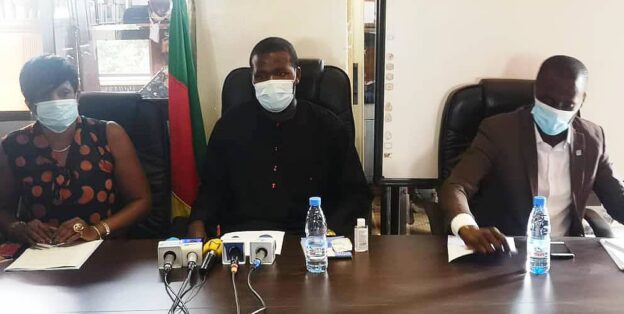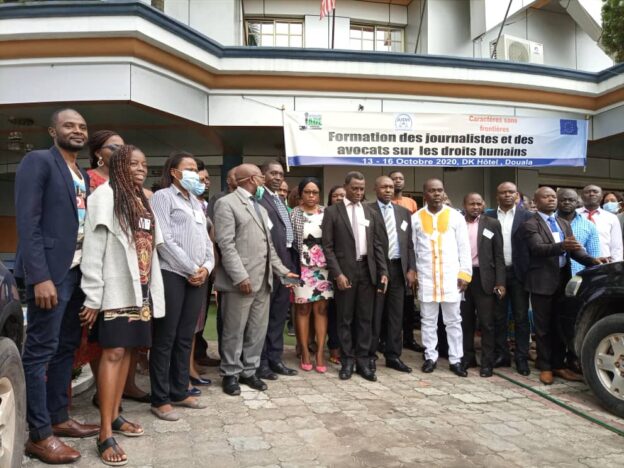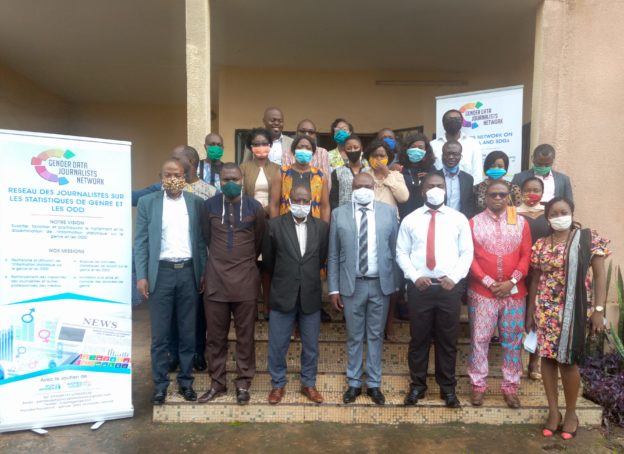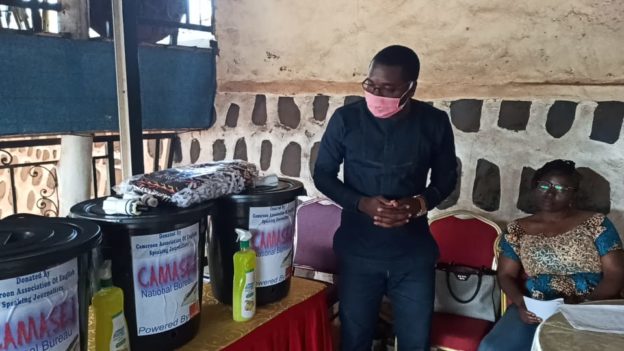Cameroon’s Science Journalists Moot Strategies to Combat Covid-19
The association of scientific journalists and communicators for the promotion of health in Cameroon known in its French acronym as AJC-PROSANTE has made key recommendations to the government in a bid to help and scale up the fight against the Covid-19 pandemic. This came to light during a press conference held on Wednesday 17th March 2021 in Yaounde and chaired by AJC-PROSANTE’s president, Joseph Mbeng Boum. Conscious and aware of the great role of the media in tackling deadly Covid-19 and despite the efforts of the government to fight against the disease in the country, AJC-PROSANTE has proposed the decentralization and intensification of screening for Covid-19 in Communities and the need to report results within a timeframe of 24hours. The journalists have also proposed the promotion and integration of products from traditional medicine in the treatment of Covid-19; and provisions for financial support to promoters of endogenous solutions. Further, AJC-PROSANTE is calling on parliament and government to adopt and promulgate a law on traditional medicine in Cameroon, provide funding to the media with public capital and particularly those with private capital as part of an awareness campaign for people to respect and observe barrier measures put in place by government in order to slow the spread of Covid-19 in communities. Other recommendations include, the enforcement by all possible means of certain barrier and physical distancing measures taken on March 17 and April 9, 2020 and a call to bring in a life-saving vaccine for populations. AJC-PROSANTE also cleared the air on some misconceptions about the Covid vaccines, adding that the vaccination is being considered as an additional means of combating the pandemic and further implored the government to take the necessary steps to acquire a quality, safe, effective vaccine that will respond well to the epidemiological context of Cameroon. The association stressed on the fact that immunization is critical in saving lives and also appealed to the public to be self-disciplined by adhering to the Covid-19 guidelines such as systematically wearing of face masks whenever in public places, washing of hands regularly and call in a doctor or other health personnel in the event that symptoms of Covid-19 appear. Following the new strain of Covid-19 causing a lot of deaths, the association is more than ever determined to work for the well-being of people and bring in more support to the government. As stated in the declaration: “AJC-PROSANTE renews its commitment to work with the government to raise awareness among the populations in the ten regions of Cameroon to comply with barrier measures, social distancing, support to slow the spread of the Covid-19 pandemic in Cameroon; reaffirms its commitment to promote health in Cameroon and to fight against Covid-19.” Pandemic Covid-19 has already led records with 42,286 positive cases and more than 633 people killed in Cameroon. Elise Kenimbeni
Read More






